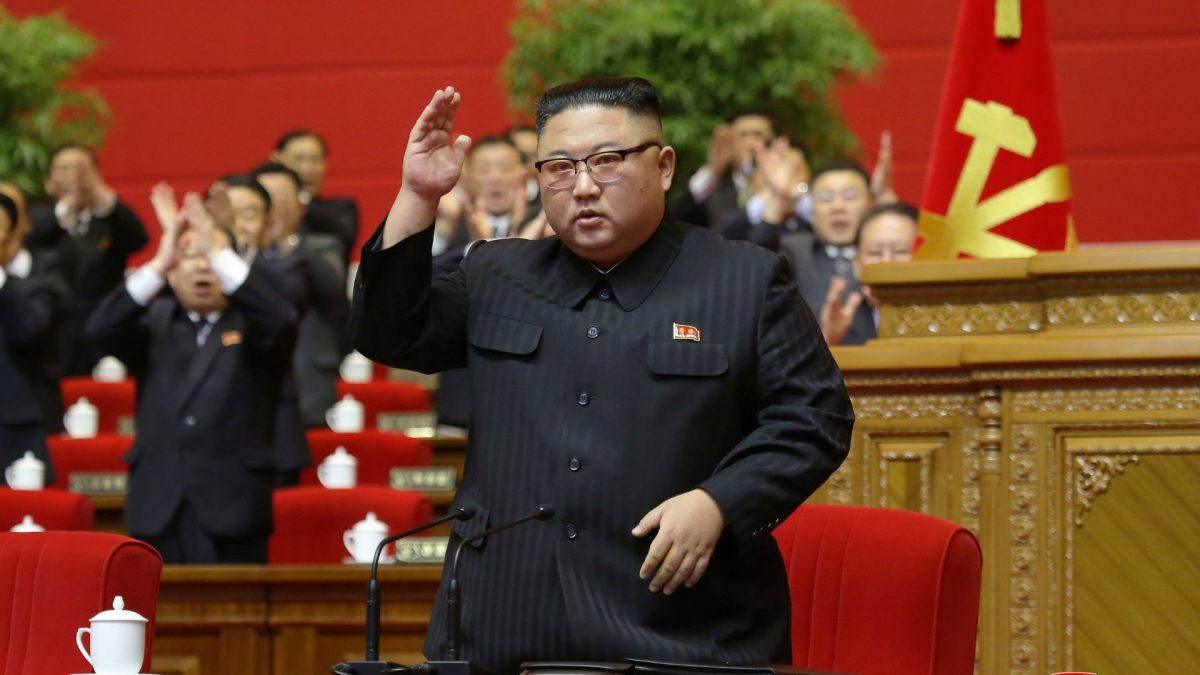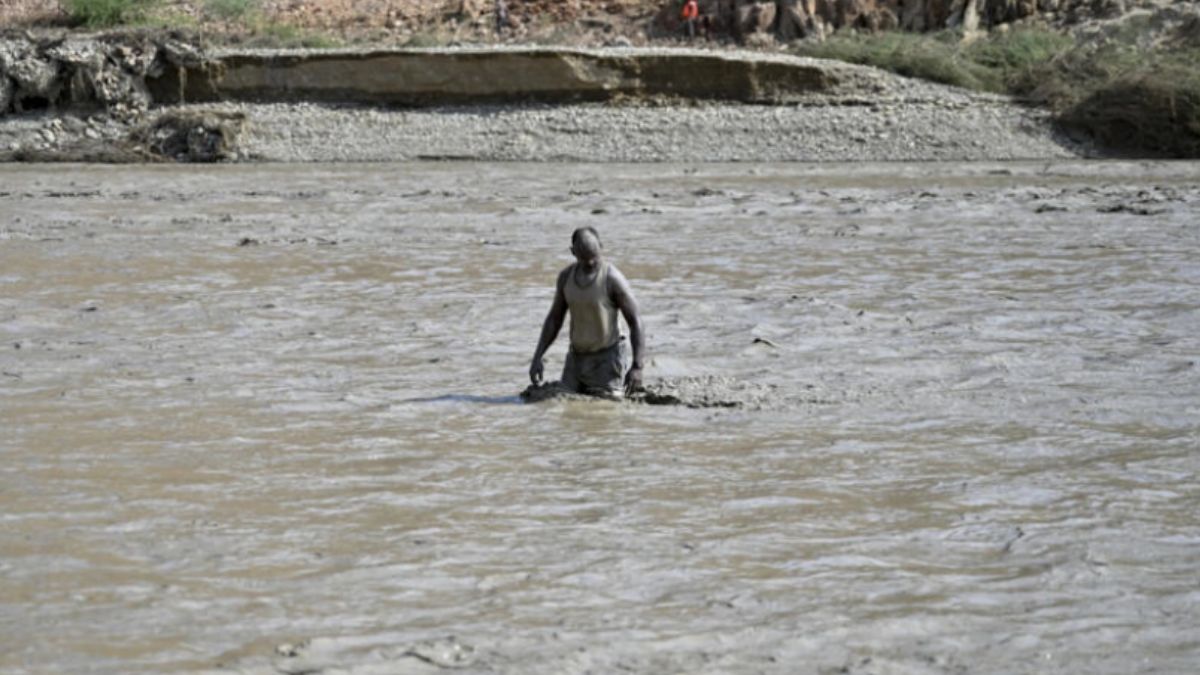The Supreme People’s Assembly, North Korea’s rubber-stamp parliament is expected to soon formalise Kim Jong-un’s directive from January, which called for the removal of constitutional language that framed inter-Korean relations as a connection between two parts of the same nation read more
)
In January, Kim Jong-un indicated that, in the event of war, North Korea should fully occupy the South and integrate it into its territory. Source: REUTERS.
North Korea is poised to formalise a significant constitutional amendment that will label South Korea as a “hostile” nation and redraw maritime boundaries.
The move could unravel decades of cautious diplomacy and escalate military tensions between the two Koreas, analysts warn.
The Supreme People’s Assembly, North Korea’s parliament, was set to meet on Monday to ratify leader Kim Jong-un’s directive from January, which calls for the removal of language framing inter-Korean relations as a connection between two parts of the same nation.
Currently, Article 9 of the Democratic People’s Republic of Korea constitution states that it seeks to achieve socialism “in the northern half of Korea” and aims for “reunification on the principle of independence, peaceful reunification, and great national unity."
“Constitutional amendments defining inter-Korean ties as two hostile states and other related measures are expected,” Koo Byung-sam, a spokesman for South Korea’s Unification Ministry, told journalists on Monday. However, the timing of the formal move remains uncertain.
Analysts anticipate that the revised constitution will include clauses defining North Korea as a “separate socialist state,” marking a definitive departure from any historical or ethnic ties with the South. Lim Eul-chul, a political science professor at Kyungnam University in Changwon, noted, “The constitutional revision opens a new chapter in the deterioration of inter-Korean ties, which began after the failure of the 2019 Hanoi summit,” referring to the meeting between Kim and then-US President Donald Trump.
“Tensions will likely escalate further in an endless cycle of tit-for-tat exchanges,” he added.
In January, Kim indicated that, in the event of war, the North should fully occupy the South and integrate it into its territory. This marks a complete departure from the 1991 inter-Korean framework agreement, which had defined relations as a “provisional special relationship” with reunification as the ultimate goal.
The agreement had outlined mutual recognition of each other’s political systems, a pledge to refrain from military aggression, and the pursuit of reunification through gradual exchanges and cooperation.
Recent satellite imagery has shown that North Korea is dismantling roads and railways near the border that once connected to the now-defunct Kaesong industrial park, a joint venture with Seoul.
Since Kim’s declaration late last year that the two Koreas are now “hostile states,” North Korea has systematically severed physical ties at the border.
Perhaps the most concerning aspect of the constitutional revision is Kim’s directive to reject the Northern Limit Line (the South’s maritime boundary), and formally establish a new sea border.
Clashes between North and South Korean forces near this disputed boundary in the Yellow Sea have historically resulted in casualties and the sinking of warships.
In 2018, both Koreas reaffirmed a 2004 agreement aimed at preventing accidental military clashes and designated the area around the contested sea border as a “zone of peace” for safe fishing activities.
“Should the North draw its sea border in the Yellow Sea more concretely … through this constitutional change, it would seriously increase the likelihood of military clashes in that area,” Koh Yu-hwan, a professor of North Korean studies at Dongguk University, told This Week in Asia.
However, Lim pointed out the complexities of enforcing a new sea border. “It’s one thing to define a sea border in the constitution, but another to implement it through military deployment when the South effectively controls the overlapping territorial waters in the Yellow Sea. The North is fully aware of this reality,” he said.
Observers speculate that the Supreme People’s Assembly may also ratify a new partnership treaty with Russia, following a June agreement between Kim and Russian President Vladimir Putin that includes a mutual defense clause, signaling deepening military cooperation. On Sunday, Pyongyang condemned NATO for criticising its military ties with Russia, warning of “tragic consequences” if the alliance continues its anti-North Korea stance.
Describing NATO as a US “tool for war,” North Korea’s foreign ministry accused the alliance of “stretching its tentacles” into the Korean peninsula and the Asia-Pacific region, suggesting it seeks new justifications for its existence following its involvement in the Ukraine conflict.
NATO recently condemned North Korea and Iran for providing military support to Russia amid the ongoing war in Ukraine. Unconfirmed reports from Ukraine indicate that more than 20 soldiers, including six North Korean military officers, were killed in a Ukrainian missile attack on Russian-occupied territory near Donetsk last week.
According to the Kyiv Post, the North Koreans were in the area to confer with Russian counterparts, with reports of additional injuries among North Korean servicemen during the incident.
With inputs from agencies.

 1 month ago
9
1 month ago
9
)
)
)
)
)
)
)
)
)
)
)
)
)
)
)
)
)
)
)
)
)
)
)
)
)
 English (US) ·
English (US) ·